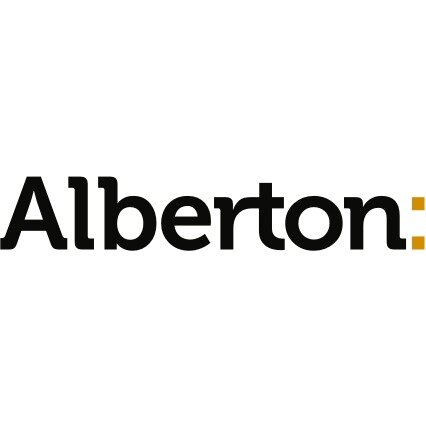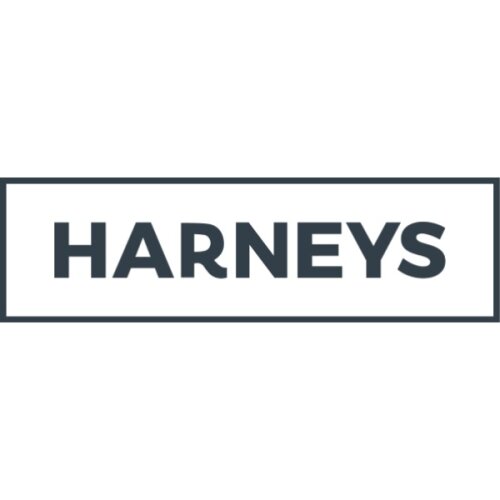Best Renewable & Alternative Energy Lawyers in British Virgin Islands
Share your needs with us, get contacted by law firms.
Free. Takes 2 min.
Or refine your search by selecting a city:
List of the best lawyers in British Virgin Islands
About Renewable & Alternative Energy Law in British Virgin Islands
Renewable and alternative energy is becoming increasingly important in the British Virgin Islands. The territory has recognized the need to reduce reliance on imported fossil fuels, lower greenhouse gas emissions, and diversify its energy sources. The government has taken steps to promote the use of solar, wind, and other clean energy sources. Legal frameworks are evolving to encourage private investment, establish clear licensing regimes, and regulate the generation and distribution of renewable energy. Whether you are an individual property owner, a business, or an energy developer, understanding the legal landscape is crucial to participating in this growing sector.
Why You May Need a Lawyer
Legal issues in renewable and alternative energy often require specialized knowledge. You may need a lawyer if you are:
- Seeking permits to install solar panels or wind turbines on your property or business
- Pursuing a commercial energy project that needs regulatory approval
- Negotiating power purchase agreements with the local utility (such as the British Virgin Islands Electricity Corporation)
- Understanding your rights and obligations under government incentive schemes
- Addressing land use and zoning questions
- Dealing with disputes related to energy supply, infrastructure, or environmental impacts
- Complying with the evolving environmental and safety standards in renewable energy development
A lawyer experienced in renewable and alternative energy can help navigate these areas, protect your interests, and ensure compliance with all local requirements.
Local Laws Overview
Renewable and alternative energy in the British Virgin Islands is governed by a mix of policies, legislation, and regulations. Key points include:
- National Energy Policy: Sets targets for increasing the use of renewable energy and improving energy efficiency.
- Electricity Ordinance and Amendments: Governs the generation, distribution, and supply of electricity in the territory. Amendments have made it possible for private producers to contribute renewable energy to the grid, subject to licensing.
- Net Metering: Regulated by the British Virgin Islands Electricity Corporation (BVIEC), net metering allows individuals and businesses to generate their own renewable energy and receive credits for supplying excess back to the grid.
- Environmental and Planning Laws: Projects may require environmental assessments and approval from bodies such as the Planning Authority, especially for larger installations.
- Land Use Regulations: Zoning and construction permits are managed by the Town and Country Planning Department and may affect the siting of renewable energy installations.
Continued updates in this legal area mean that prospective investors and businesses need to stay informed to remain compliant and take advantage of available incentives.
Frequently Asked Questions
What renewable energy options are available in the British Virgin Islands?
The most common options include solar photovoltaic systems, solar water heaters, small-scale wind turbines, and the potential for future development in biomass and geothermal energy.
Do I need a permit to install solar panels on my home or business?
Yes, you will typically need approval from the Planning Authority and possibly other agencies. Compliance with safety and electrical standards is also required.
Can I sell excess electricity produced by my renewable system back to the grid?
Yes, the net metering program overseen by the BVIEC allows users to export excess electricity to the grid and receive credits, but there are conditions and capacity limits.
Is it possible to connect privately generated renewable energy to the public grid?
Private connections are permitted under the regulations, provided you meet technical and legal requirements, including getting the appropriate license from the BVIEC.
What government incentives exist for renewable energy projects?
Incentives may vary, but can include duty exemptions for importing renewable energy equipment and specific programs to support renewable energy adoption. Eligibility and requirements can change, so consult with a legal expert or the government for the latest information.
What environmental regulations impact renewable energy projects?
Larger installations may require an environmental impact assessment and must comply with land use and planning rules to minimize ecological disturbance and maintain community standards.
Are there restrictions on the size or type of renewable energy systems?
Yes, there may be size limits especially for systems that connect to the national grid. The type of technology used must also meet safety and performance standards set by relevant authorities.
What contracts or agreements are necessary for a renewable energy project?
You may need contracts such as lease agreements (for land), power purchase agreements (with utilities), and supply or installation contracts. Legal review of these documents is recommended.
How can disputes over renewable energy projects be resolved?
Disputes can generally be resolved through negotiation, mediation, or, if necessary, formal legal proceedings in the courts. Specialized knowledge of energy law will be important in these situations.
Do residents of all islands in the BVI have the same access to renewable energy laws and incentives?
Most laws and incentives apply across the territory, but practical access may vary based on infrastructure, grid connectivity, and local planning rules on each island.
Additional Resources
If you are seeking more information or legal support around renewable and alternative energy in the British Virgin Islands, consider the following:
- British Virgin Islands Electricity Corporation (BVIEC) - oversees grid, net metering, and utility regulation
- Ministry of Natural Resources and Labour - responsible for energy policy and planning
- Town and Country Planning Department - manages land use, building permits, and zoning laws
- Environmental Health Division - ensures compliance with environmental and public health standards
- Local law firms with experience in energy law and infrastructure projects
- Regional and international organizations promoting sustainable energy for small island states
Next Steps
If you are considering a renewable or alternative energy project or need legal guidance:
- Define your project goals and gather any relevant documentation
- Identify which permits, approvals, or licenses may be required
- Consult with a qualified legal professional experienced in energy law in the British Virgin Islands
- Engage with government departments or the BVIEC early in your project planning to clarify regulatory requirements
- Stay informed about policy updates or public consultations relevant to renewable energy
- If you encounter disputes or complex regulatory issues, seek legal advice before proceeding further
Navigating the renewable and alternative energy sector in the British Virgin Islands can be complex, but with the right guidance you can achieve compliance, secure necessary approvals, and contribute to a sustainable energy future for the territory.
Lawzana helps you find the best lawyers and law firms in British Virgin Islands through a curated and pre-screened list of qualified legal professionals. Our platform offers rankings and detailed profiles of attorneys and law firms, allowing you to compare based on practice areas, including Renewable & Alternative Energy, experience, and client feedback.
Each profile includes a description of the firm's areas of practice, client reviews, team members and partners, year of establishment, spoken languages, office locations, contact information, social media presence, and any published articles or resources. Most firms on our platform speak English and are experienced in both local and international legal matters.
Get a quote from top-rated law firms in British Virgin Islands — quickly, securely, and without unnecessary hassle.
Disclaimer:
The information provided on this page is for general informational purposes only and does not constitute legal advice. While we strive to ensure the accuracy and relevance of the content, legal information may change over time, and interpretations of the law can vary. You should always consult with a qualified legal professional for advice specific to your situation.
We disclaim all liability for actions taken or not taken based on the content of this page. If you believe any information is incorrect or outdated, please contact us, and we will review and update it where appropriate.
Browse renewable & alternative energy law firms by city in British Virgin Islands
Refine your search by selecting a city.














